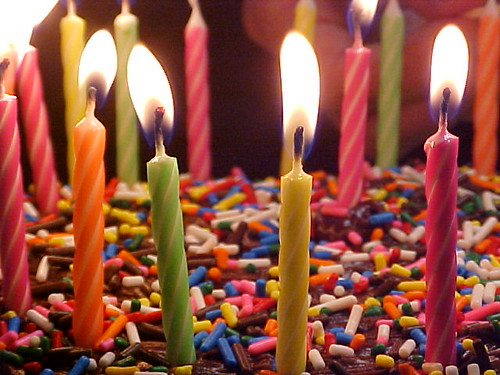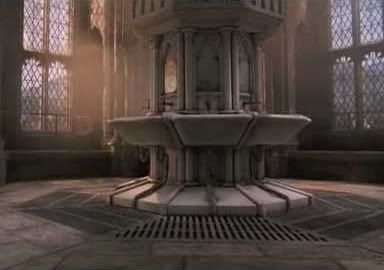Where a writer writes can be a big deal. In a writing shed? A special home office? A coffee shop, a park, in bed?
Some artists carve out spaces that are theirs. They have one room, one desk, one book, one pen, and one process to work the magic. Some go out into The World and use that as their inspiration, their lifeline, as a useful anchor to stop them drowning in their own head.
I can do both, depending on my mood. I tend to need silence, so coffee shops are out, but I also go stir crazy if I don't see some sky every now and then.
I write in my home, but I write in many rooms.
This needs some clarification. My home only has four rooms, really. Five if you count living and dining as separate. When I write, I move around, depending on the time of day and the time of year. We have many tables, many views, many places to sit.
I thought I would share with you all some of the things I write surrounded by - specifically, the things we have on our walls. Can it say a lot? Maybe. Probably. Not sure. But it's fun, isn't it? Yes, it is. And so,
The Things On My Walls Where I Live

In our kitchen we have a cork board, and on that cork board, postcards from many places. Many of these we've sent ourselves - a habit started on honeymoon that's stayed strong so far. More people should try it. We write the main points and quirks of a trip on the back, and send it back home to wait for us / be a surprise when it turns up 3 months later. The result - a big ol' board of fun memories, and also one rather cross looking boob-woman.

Now, the living room's a good one, The walls have
swords. Not just any swords, either, but practically literary ones. Tolkien's
Lord of the Rings is a big love of my wife's, and the swords from the movies - and this is full size, rather sharp, dangerous in the wrong hands ones - hang from our walls. Seen here is Sting, my latest birthday present to her. Shiny.

Between our bookcases is a Christmas gift from my sisters -
Tang Yau Hoong's Little Red Riding Hood. I love his stuff, and this one really says a lot about books and what they have inside them. Between the bookshelves is a good place for it.
Above our dining room table is this spiffy map. It's of the Caribbean - bought while I was there - and it's part memento, part reminder that I intend to have a map room with many maps inside it at some point in the future. It's also a good reminder to travel, to see the world, and that Bermuda is totally
not in the Caribbean. Who knew?
A lot of writing is done here. A lot of dreaming, too.
Beside the dining table is a shelf, and on that shelf - beside books - is the Incredulous Owl. I bought this for my (then) fiancee while we were living in Japan. Firstly, I like this piece. It's good art. Second, it's damn funny, and you can probably tell from the title what it is that makes us laugh. Good art can be funny art, too, if you're with the right people, and in the right mood.
We're in the bathroom now. This Celtic cross was a spur of the moment buy many years ago when I was in Wales on a family holiday. Celtic art has a lot going for it, and this piece - in truth, not real slate but mocked up to look like it - caught my eye. It's peaceful and strong and eternal. It's made it to the U.S. now, and I don't see why a house can't be decorated in a Japanese / Celtic / Elvish theme, really.
We've made it to the bedroom. On my side, another of Tang Yau Hoong's pieces. Why? Cause I like it. What more does art need? I even have it on a t-shirt now, thanks to my last birthday and some canny friends.
And on my wife's side of the bed ...

Hanging Japanese calligraphy. I had this made up by one of my students there, as a special birthday gift. The Japanese reads
hajime ni kotoba ga atta and translates as 'In the beginning was the word', the first words of John's Gospel. We were missionaries over there, and it's a good soundbite for even the hardest heart.

Above the bedroom desk, where a lot of my writing gets done, is a print of a photo by a good friend / good brother-in-law,
Brandon Rechten. He shoots a lot of abandoned buildings / urban exploration, so these torn pages and crumpled pages aren't a set up, they're just forgotten. For some reason it always makes my desk look suddenly so much neater...
Of course, there are other things in our apartment, on our walls, in our lives. Not everything is for sharing. These things were, though, and I hope you liked them. What do you write surrounded by? What's your favorite piece or art to own, or to dream of owning? Let me know in the comments.
.jpg) The news came at a time when I was getting despondent,
for the first time, really, about my writing, and I could NOT be happier. My
agent has been a complete star through all of this and I owe her a drink when
we next meet. The editor at C&R, Sarah Castleton, said lovely things about
EREN and it's clear that she really, really gets the book - which is exactly
what I needed.
The news came at a time when I was getting despondent,
for the first time, really, about my writing, and I could NOT be happier. My
agent has been a complete star through all of this and I owe her a drink when
we next meet. The editor at C&R, Sarah Castleton, said lovely things about
EREN and it's clear that she really, really gets the book - which is exactly
what I needed.













